
Johann Gutenberg with the first proof of the Bible (Courtesy of Public Domain)

Johann Gutenberg with the first proof of the Bible (Courtesy of Public Domain)
“The Roman Catholic Church, whose influence spanned Europe, avidly supporting printing. A variety of religious manuals were needed for church services and for the education of priests, and the church wanted them to be uniform and correct. Printing greatly helped fund-raising through the sale of “letters of indulgence.” The church also oversaw the universities, where students needed textbooks, and where scholars, eagerly rediscovering the worlds of ancient writers, prepared editions of Roman and Greek classics”
-Diana Childress
When the Bible was the first printed book by Gutenberg, the Roman Catholic Church supported the printing industry because, as more religious works get published, it strengthened and spread their religion.

The Sale of Indulgences in Church; Woodcut from the Title Page of Luther's Pamphlet On Aplas Von Rom. (Courtesy of Kids Britannica)
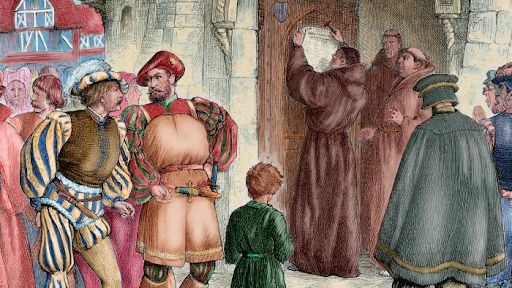
Martin Luther nailing his 95 theses on the door of Wittenberg castle church (Courtesy of Public Domain)
Priests thought that they would receive more bibles, which would reinforce Christian worship. They didn't know that it would be the end of Christian unity, which would be one of the most remarkable changes the printing press has brought to Europe.
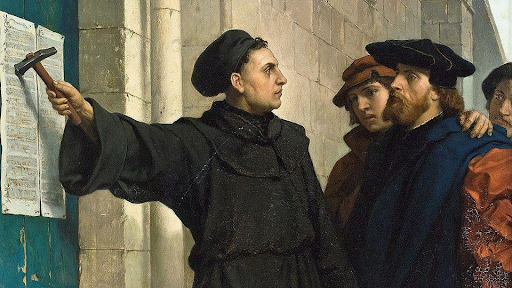
Martin Luther nailing his 95 Theses to the church door, catalyzing the Protestant Reformation (Courtesy of Public Domain)
A German professor, monk, and priest named Martin Luther became the first bestselling author. Luther was against the church's methods and indulgences, which were used to assure someone whose sins were forgiven a place in heaven. He questioned the church's practices and wrote an argument called "The 95 Theses". Luther nailed down a copy of the document on the Wittenberg castle church.
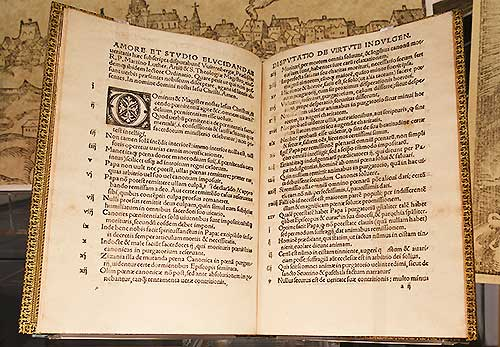
95 Theses. Martin Luther. Basel, 1517 (Courtesy of National Library of Scotland)
"God suffers in the multitude of souls whom His word can not reach. Religious truth is imprisoned in a small number of manuscript books which confine instead of spread the public treasure. Let us break the seal which seals up holy things and give wings to Truth in order that she may win every soul that comes into the world by her word no longer written at great expense by hands easily palsied, but multiplied like the wind an untiring machine."
-Johannes Gutenberg
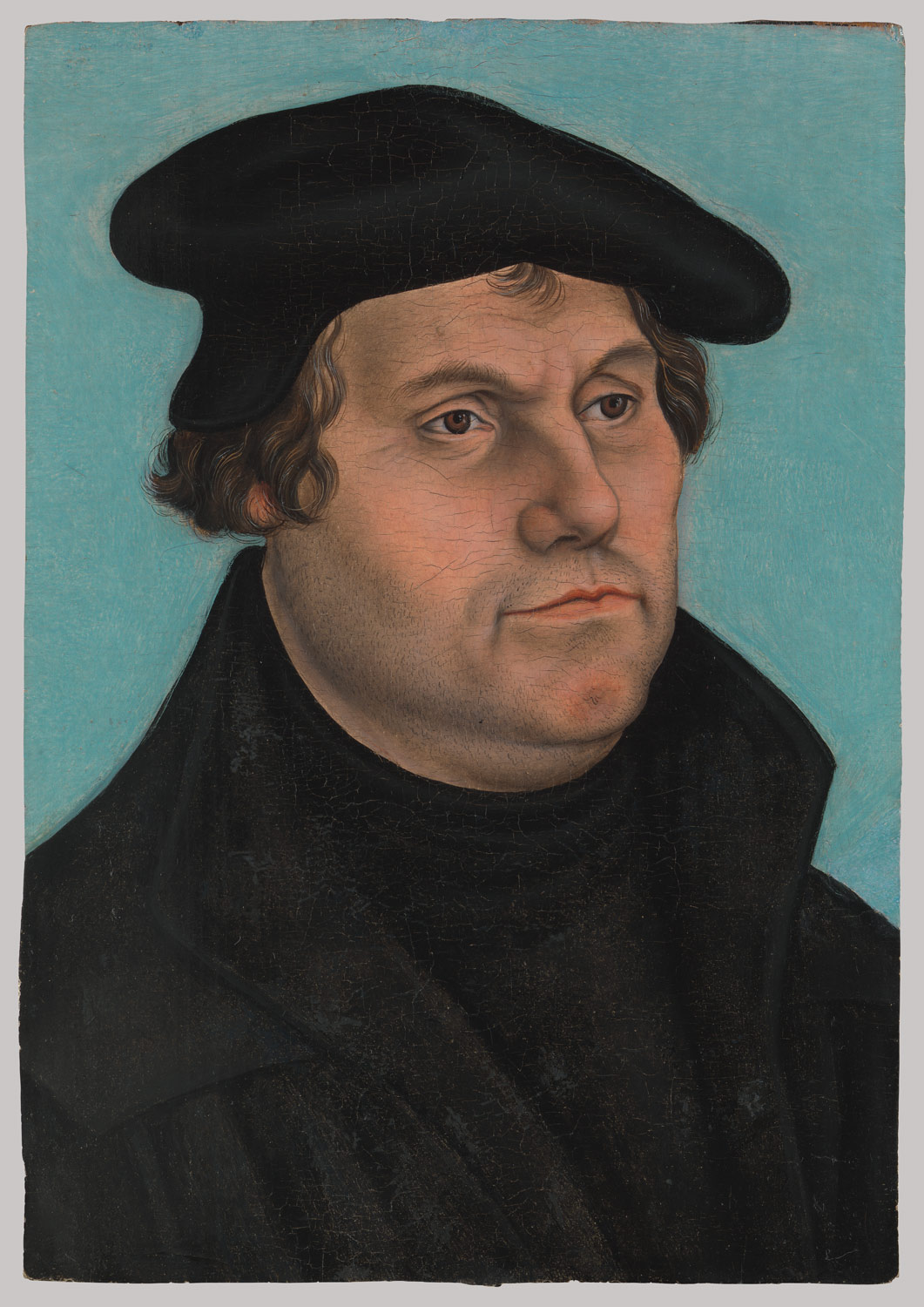
A Painting of Martin Luther (Courtesy of The Metropolitan Museum of Art)

A Painting of John Calvin (Courtesy of Calvin University)
The 95 Theses became popular, and Martin Luther was known for the Reformation. The church banned all works against its religious teachings, accused Martin Luther of heresy, and excommunicated him from the Catholic Church. Other famous reformers were John Calvin, who wrote the "Institutes of the Christian Religion." The Protestant Reformation had a tremendous effect on Europe. It caused the Counter-Reformation and the Thirty Years War and other religious wars and rebellions.
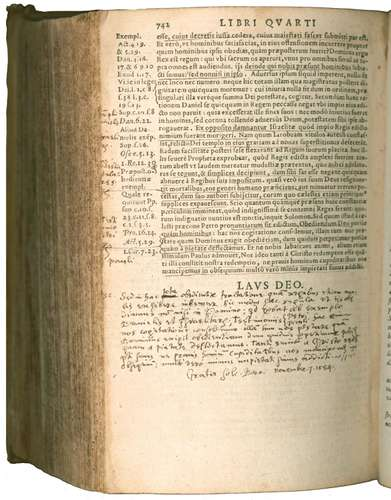
A 1576 edition of John Calvin's Institutio Christianae religionis. Institutes of the Christian Religion. (Courtesy of Britannica)